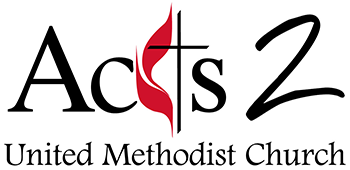We All Got Mothers
Michael Andres
May 15, 2025
Reading
Every year Jesus’ parents traveled to Jerusalem for the Feast of Passover. When he was twelve years old, they went up as they always did for the Feast. When it was over and they left for home, the child Jesus stayed behind in Jerusalem, but his parents didn’t know it. Thinking he was somewhere in the company of pilgrims, they journeyed for a whole day and then began looking for him among relatives and neighbors. When they didn’t find him, they went back to Jerusalem looking for him.
Luke 2:41-45 (The Message)
Reflection
I’ve always held a certain admiration for the way Boston guys—or guys from Brooklyn or Queens—are portrayed on screen. Messy, violent, brash, sure. But also loyal, measured, and deep down, affectionate. Hedgehogs with accents, basically.
Ed Burns plays one of these guys in Saving Private Ryan—Private Richard Reiben. He’s part of a weary squad sent behind enemy lines in war-torn France to rescue the titular Ryan, who lost his brothers elsewhere in the European and Pacific theaters of WWII. Having lost brothers of their own—fellow soldiers, friends, fragments of themselves—they begin to question the mission’s worth.
In one moment, Reiben vents to his captain, John Miller (played by Tom Hanks, America’s #1 Good Dude).
“You wanna explain the math of this to me?” he says, taking a cigarette from the medic, who’s awkwardly trying to ease the tension. “I mean, where’s the sense in risking the lives of the eight of us to save one guy?”
Captain Miller doesn’t answer, and Reiben keeps going:
“I got a mother. You got a mother. Sarge’s got a mother. I mean, I bet even the Captain’s got a mother.”
(beat)
“Well, maybe not the Captain, but the rest of us got mothers.”
The moment is sharp and tender. Enough to get a laugh. Enough to make a point. You know—like a hedgehog with an accent.
It stays with me not because I want to be that guy, but because it reminds me: no matter how hardened by life we become, no matter how far we’ve traveled or how much we’ve lost, we all carry where we came from.
We’ve all got mothers in one way or another. Some were nurturing, others distant. Some complicated. Some long gone. But none of us appeared out of thin air. None of us were conjured up just because. We are all shaped by someone, somewhere back down the line.
Morgan reminded me of this on Sunday. She reflected on how Jesus likely learned justice and kindness, hospitality and courage from his mother. From the aunties and grandmas in his village. He learned compassion and sharing. He watched the way women made room, made do, made peace. And then he taught us.
When we look back at our own stories—at the people who helped shape us—it’s easy to be critical. Maybe it’s the pain. Maybe it’s the absence. Maybe it’s the silence, or the words that wounded. But if we let Jesus look back with us, something softens.
We begin to see grace and love within the cracks—and also words of encouragement, gestures of care, and a presence that came from our own villages. We see our mothers—and all who raised us—for who they were and are: beloved, human, and enveloped in God’s grace just as we are.
We exist within community, and nowhere is that more powerful—or more potent—than within the stories of our families.
Prayer
God, I don’t always see you in my story—
But I trust you’ve been there.
In the grief I carry, and the joy I remember.
Keep healing the broken parts, Jesus.
Let my past speak grace into my future.
And when I can’t see clearly, when I don’t understand,
Soothe me, Spirit.
Move.
AMEN.


